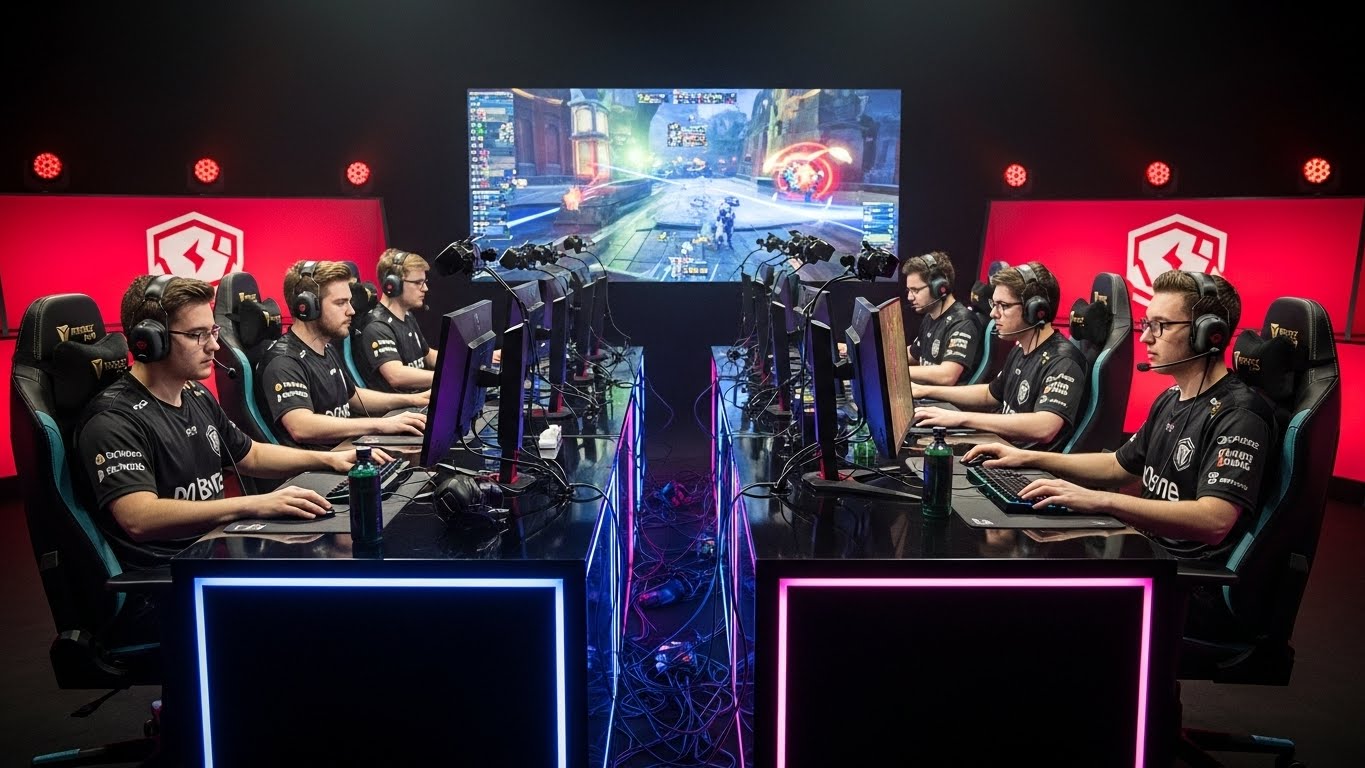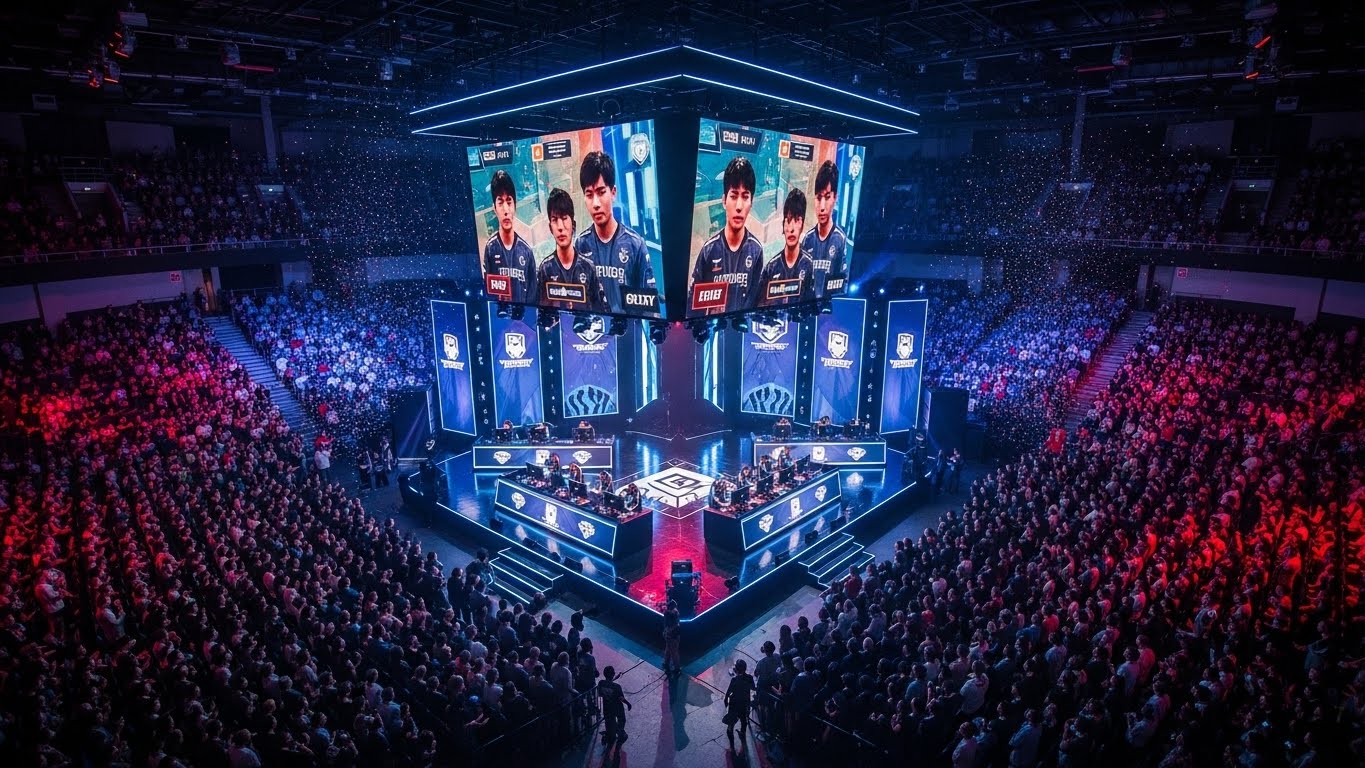Introduction
In the last few decades, the landscape of entertainment has undergone a profound transformation. One of the most significant changes has been the rise of esports, or electronic sports, which have evolved from casual gaming to an organized, global competitive industry. Once dismissed as a pastime for teenagers, esports have become a billion-dollar phenomenon with professional players, massive audiences, and global tournaments rivaling traditional sports. The journey of esports represents a fascinating story of technology, passion, and cultural change.
The Origins of Esports
The roots of esports can be traced back to the early days of video gaming in the 1970s. One of the first recorded gaming competitions took place in 1972 at Stanford University, where students competed in the game “Spacewar.” The prize was modest, but it marked the beginning of a new era of digital competition. Through the 1980s and 1990s, arcade gaming and console games like Pac-Man, Street Fighter, and Super Mario Bros. encouraged friendly competition among players.
The true birth of esports as a recognized industry began in the late 1990s with the rise of multiplayer PC games such as StarCraft, Quake, and Counter-Strike. These games introduced the concept of online competition, allowing players from different parts of the world to test their skills against one another. At the same time, internet cafes and local area network (LAN) parties became social hubs where gamers could compete face-to-face.
The Rise of Online Gaming and Global Competitions
The 2000s marked a turning point for esports. The spread of broadband internet made online gaming accessible to millions. Titles like Dota, League of Legends, and Counter-Strike created a foundation for professional gaming leagues. The first major international tournaments began to appear, offering real prize money and sponsorship deals.
Games like StarCraft became national phenomena in countries such as South Korea, where esports developed into a legitimate career path. Korean broadcasters started airing matches on television, fans gathered in stadiums, and professional teams emerged with coaches and managers. This professionalization of gaming inspired other countries to follow suit.
The Influence of Technology on Esports Development
Technological advancements have played a key role in the growth of esports. High-speed internet, powerful gaming hardware, and streaming platforms have made it easier than ever for players and fans to connect. The emergence of streaming services transformed the way audiences consumed content. Platforms that allowed players to broadcast their gameplay helped esports reach global audiences without the need for traditional television.
Virtual reality, augmented reality, and mobile gaming have further expanded the reach of esports. Today, a competitive gamer no longer needs an expensive setup to participate. Smartphones have opened the door to millions of players, with mobile esports titles becoming major contenders in the competitive scene.
Esports as a Career Path
What was once a hobby has now become a full-time career for thousands of individuals. Professional players, coaches, commentators, analysts, event organizers, and content creators all contribute to the esports ecosystem. Major teams and organizations provide salaries, benefits, and training facilities similar to those found in traditional sports.
Players often start young, dedicating countless hours to mastering their craft. The level of discipline, focus, and teamwork required in esports is comparable to any physical sport. Many players train for up to eight to ten hours a day, analyzing strategies, refining mechanics, and maintaining physical fitness to handle the mental strain of competition.
Beyond players, esports offers a wide range of professional opportunities. Broadcasters, journalists, marketers, and social media managers are vital to sustaining the industry. Universities and schools have even begun offering scholarships and degree programs in esports management, game design, and digital media.
Major Esports Titles and Their Impact
Esports encompasses a wide variety of game genres, each with its own unique community and competitive structure. Some of the most influential titles have shaped the identity of modern esports.
League of Legends has become one of the most-watched games globally, with annual world championships attracting millions of viewers. The game’s emphasis on strategy, teamwork, and mechanical skill makes it a cornerstone of the esports scene.
Counter-Strike: Global Offensive (CS:GO) has maintained its dominance as one of the most tactical and skill-intensive shooters. Its competitive format, simple objectives, and thrilling matches have made it a fan favorite for over a decade.
Dota 2, known for its complexity and deep strategic gameplay, hosts The International, one of the biggest esports tournaments in the world, with prize pools reaching tens of millions of dollars.
Fortnite, with its battle royale format, redefined mainstream gaming by blending casual play with professional competition. Its accessibility and unique building mechanics attracted players of all ages.
Valorant, a relatively new entry, combines elements of tactical shooting with hero-based abilities, quickly rising to prominence in global tournaments.
Other games like Overwatch, Call of Duty, Rocket League, and FIFA have also contributed to esports diversity, showing that competitive gaming spans multiple genres and audiences.
The Role of Esports Organizations and Leagues
The success of esports relies heavily on well-structured organizations and leagues. These entities manage player contracts, sponsorships, event logistics, and community engagement. Franchised leagues, such as the Overwatch League and League of Legends Championship Series, mirror the structure of traditional sports leagues, offering stability and consistent viewership.
Esports organizations have become brands in themselves, often branching out into merchandise, content creation, and social media influence. Teams like T1, FaZe Clan, Cloud9, and G2 Esports have achieved global recognition, not just for their competitive success but also for their cultural impact.
Esports and the Spectator Experience
One of the defining features of esports is its ability to captivate audiences. The combination of strategy, reflexes, and unpredictable outcomes makes esports events thrilling to watch. Unlike traditional sports, esports are not limited by geography or physical stadiums. Fans from any country can watch live matches online, interact with players, and participate in community discussions.
Commentary and analysis play a crucial role in making esports accessible to new viewers. Professional commentators, often known as “casters,” break down plays, explain strategies, and inject excitement into broadcasts. Production quality has improved drastically, with high-definition graphics, instant replays, and in-game overlays enhancing the viewing experience.
The Cultural Impact of Esports
Esports have transcended gaming to become a major cultural movement. They have influenced fashion, music, and even education. Gaming-inspired clothing lines, music collaborations, and sponsorship deals with mainstream brands reflect the growing cultural acceptance of esports.
In many ways, esports symbolize the digital age. They bring together communities across borders, languages, and backgrounds. The shared passion for competition and teamwork bridges gaps that traditional entertainment often cannot. Esports events foster inclusivity, where anyone with skill and dedication can succeed regardless of gender or nationality.
Economic Growth and Investment
The esports industry has become a powerhouse of economic activity. Revenue streams come from sponsorships, advertising, ticket sales, merchandise, and media rights. Major companies have invested heavily in esports, recognizing its potential to reach younger audiences who consume content differently from older generations.
Cities have begun hosting large-scale tournaments, boosting local tourism and creating business opportunities. The construction of dedicated esports arenas demonstrates the industry’s permanence and future potential. Investors see esports not as a trend but as a cornerstone of digital entertainment for the coming decades.
The Role of Education in Esports Development
Educational institutions around the world are recognizing the value of esports. Universities are forming teams, offering scholarships, and integrating esports management courses into their curriculums. These programs teach not only gaming skills but also teamwork, leadership, communication, and business management.
Esports in schools also provide a constructive outlet for students passionate about gaming. Instead of being seen as a distraction, gaming is now viewed as an avenue for developing critical thinking, problem-solving, and time management skills.
Health and Well-being in Esports
A common misconception is that esports players lead unhealthy lifestyles. While early years of gaming culture often encouraged long, sedentary hours, modern esports emphasize balance. Professional players now follow strict physical and mental training regimens to maintain peak performance.
Nutrition, exercise, and mental health support are integral parts of modern esports organizations. Many teams employ psychologists, fitness trainers, and nutritionists to help players manage stress, fatigue, and the pressures of competition. Maintaining a healthy lifestyle has become as important as mechanical skill.
Challenges Facing the Esports Industry
Despite its rapid success, esports faces several challenges. Issues such as player burnout, unfair contracts, and lack of regulation are still common. The industry’s young age means that standardized policies for player welfare and competition integrity are still evolving.
Cheating, match-fixing, and online harassment also threaten the credibility of esports. Developers and organizations are constantly developing anti-cheat systems and enforcing strict disciplinary actions to preserve fairness.
Another challenge is representation and diversity. While esports are open to all, barriers such as gender bias and unequal opportunities still exist. However, progress is being made as more women and underrepresented groups gain recognition in competitive gaming.
The Future of Esports
The future of esports looks incredibly promising. With the integration of new technologies like artificial intelligence, cloud gaming, and virtual reality, the possibilities for innovation are endless. These technologies will continue to enhance gameplay, broadcasting, and audience engagement.
Esports are also moving toward the mainstream, with governments recognizing them as official sports in some countries. The potential inclusion of esports in major international sporting events reflects its growing legitimacy.
In the coming years, the lines between traditional sports and esports may blur even further. Hybrid events combining physical and digital elements could redefine what competition looks like in the modern era.
Conclusion
Esports have come a long way from their humble beginnings in university basements and local arcades. What started as friendly competition among gamers has evolved into a global spectacle that unites millions. The combination of technology, creativity, and human skill has turned gaming into a legitimate and celebrated form of sport.
As the industry continues to grow, esports will remain a symbol of how entertainment and competition can adapt in the digital age. It stands as a testament to human innovation, passion, and community spirit. Whether you are a player, a fan, or an observer, the world of esports offers a thrilling glimpse into the future of global entertainment—one that is just beginning to reach its full potential.



